Dubbed MORGAN ('Materials for robust gallium nitride'), the three-year, EUR 9.2 million project is financed under the Nanosciences, nanotechnologies, materials and new production technologies Theme of the Seventh Framework Programme.
Mar 19th, 2009
Read more
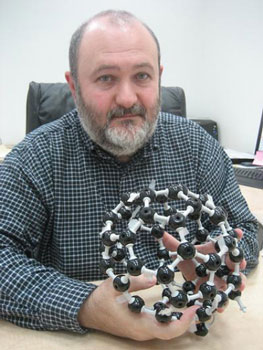 In partnership with a group of Prof. Howard Weiner from Brigham and Women's Hospital at Harvard Medical School, Dr. Michael Gozin from TAU's School of Chemistry is attempting to create the next generation MS drug based on a delivery platform of "buckyballs.
In partnership with a group of Prof. Howard Weiner from Brigham and Women's Hospital at Harvard Medical School, Dr. Michael Gozin from TAU's School of Chemistry is attempting to create the next generation MS drug based on a delivery platform of "buckyballs.
Mar 19th, 2009
Read more
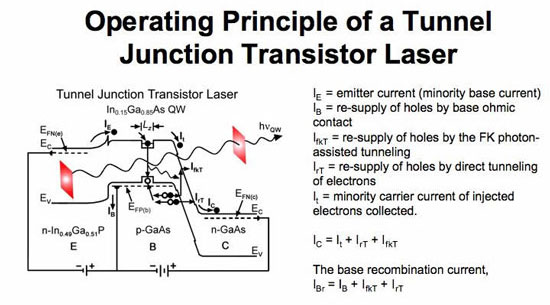 Scientists at the University of Illinois have successfully demonstrated a microwave signal mixer made from a tunnel-junction transistor laser. Development of the device brings researchers a big step closer to higher speed electronics and higher performance electrical and optical integrated circuits.
Scientists at the University of Illinois have successfully demonstrated a microwave signal mixer made from a tunnel-junction transistor laser. Development of the device brings researchers a big step closer to higher speed electronics and higher performance electrical and optical integrated circuits.
Mar 19th, 2009
Read more
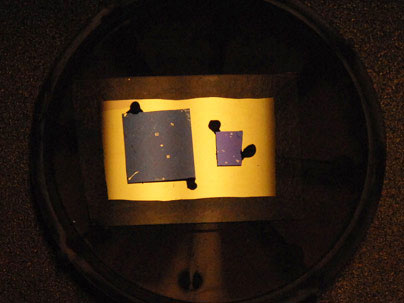 New research findings at MIT could lead to microchips that operate at much higher speeds than is possible with today's standard silicon chips, leading to cell phones and other communications systems that can transmit data much faster.
New research findings at MIT could lead to microchips that operate at much higher speeds than is possible with today's standard silicon chips, leading to cell phones and other communications systems that can transmit data much faster.
Mar 19th, 2009
Read more
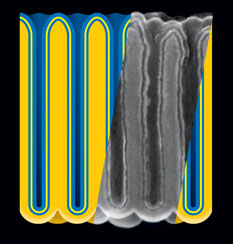 Researchers at the Maryland NanoCenter at the University of Maryland, College Park, have developed new systems for storing electrical energy derived from alternative sources that are, in some cases, 10 times more efficient than what is commercially available.
Researchers at the Maryland NanoCenter at the University of Maryland, College Park, have developed new systems for storing electrical energy derived from alternative sources that are, in some cases, 10 times more efficient than what is commercially available.
Mar 19th, 2009
Read more
Next-generation batteries based on novel nanotechnology devices developed at the University of Maryland could take as little as 10 years to appear in cars. These modern batteries will be capable of storing enough electricity to eliminate the need for hybrid cars, which rely on gasoline as a backup.
Mar 19th, 2009
Read more
To include Nanotech startups and other companies which have interests in the business of nanotechnology
Mar 19th, 2009
Read more
A one day symposium on using DNA to build structures and machinery on millionths and billionths of a meter scales will bring leading experts from Denmark and throughout the United States to Duke University on Friday, March 20, 2009.
Mar 19th, 2009
Read more
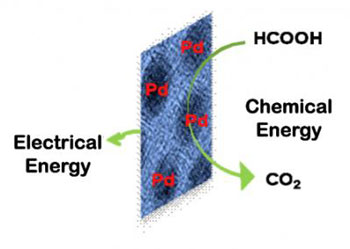 Researchers have wrestled with creating palladium nanoparticles with enough active surface area to make catalysis efficient in fuel cells while preventing particles from clumping together during the chemical processes that convert a fuel source to electricity. Two Brown University chemists have found a way to overcome those challenges.
Researchers have wrestled with creating palladium nanoparticles with enough active surface area to make catalysis efficient in fuel cells while preventing particles from clumping together during the chemical processes that convert a fuel source to electricity. Two Brown University chemists have found a way to overcome those challenges.
Mar 19th, 2009
Read more
A new study answers a key question at the very heart of nanotechnology: Why are nanorods so small?
Mar 19th, 2009
Read more
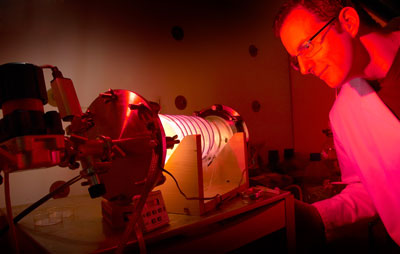 Researchers at the University of Bath are to be part of a EUR3 million Europe-wide research collaboration to pioneer research into safer, more effective anti-bacterial plastics and coatings that can be used in items such as food packaging, medical devices to wound dressings, and nappies.
Researchers at the University of Bath are to be part of a EUR3 million Europe-wide research collaboration to pioneer research into safer, more effective anti-bacterial plastics and coatings that can be used in items such as food packaging, medical devices to wound dressings, and nappies.
Mar 19th, 2009
Read more
On Tuesday Members of Parliament will debate a report from the Environment Committee that wants risk assessments nanofoods and calls for labelling if used.
Mar 19th, 2009
Read more
National Cheng Kung University today announced the launch of its Integration of Biomedical and Nanotechnology Systems Project.
Mar 19th, 2009
Read more
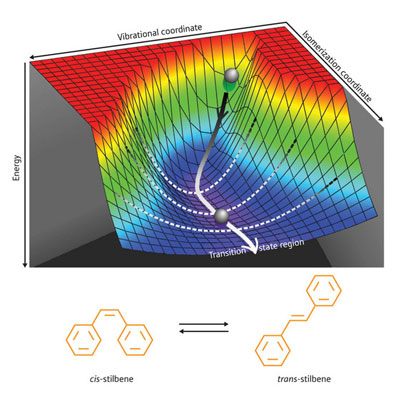 A team of Japanese scientists have directly observed how an organic molecule named stilbene rearranges its structure.
A team of Japanese scientists have directly observed how an organic molecule named stilbene rearranges its structure.
Mar 19th, 2009
Read more
TECNALIA is leading the IAPETUS project, within the European Union 7th Framework Programme, and aimed at developing a new technology for repairing aircraft by means of composite patches applied to both aluminium and to the new generation of compound materials aircraft.
Mar 18th, 2009
Read more
Northwestern University researchers have designed a high-performing photoconducting material that uses zinc oxide -- an environmentally friendly inorganic compound found in baby powder and suntan lotion -- instead of lead sulfide.
Mar 18th, 2009
Read more








 Subscribe to our Nanotechnology News feed
Subscribe to our Nanotechnology News feed